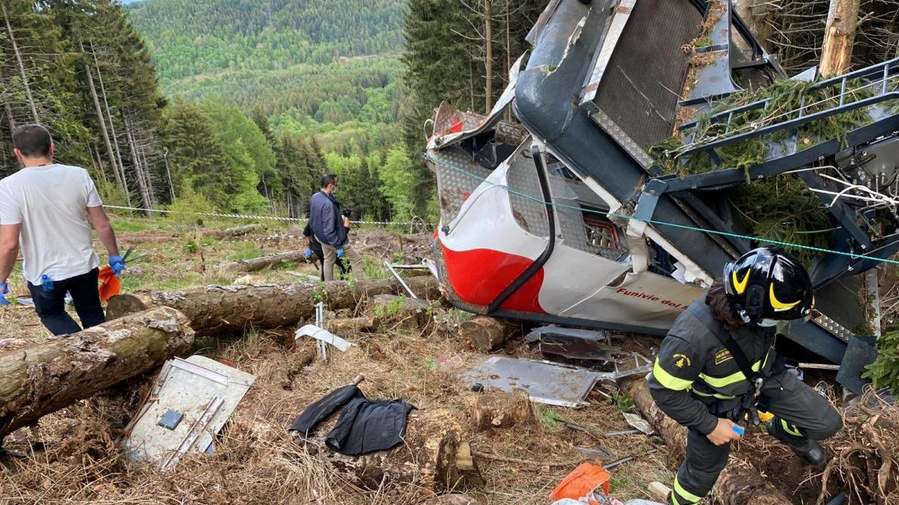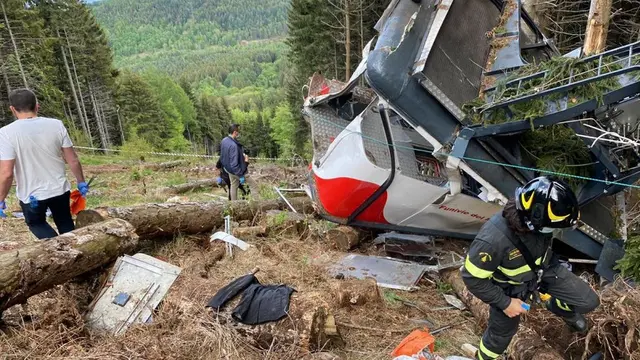
The investigation into Italy's cable car disaster that killed 14 people will focus on why the lead cable snapped and why the emergency brake didn't engage and prevent the cabin from careening back down the mountain until it pulled off the support line and crashed to the ground, the lead prosecutor said Monday. /Xinhua
The investigation into Italy's cable car disaster that killed 14 people will focus on why the lead cable snapped and why the emergency brake didn't engage and prevent the cabin from careening back down the mountain until it pulled off the support line and crashed to the ground, the lead prosecutor said Monday.
Verbania Prosecutor Olimpia Bossi outlined the contours of her investigation based on what she said was objective, empirical fact of what occurred: "The brakes of the security system didn't work. Otherwise the cabin would have stopped," she said. "Why that happened is naturally under investigation."
Bossi spoke to reporters as the lone survivor of Sunday's horrific tragedy, a 5-year-old Israeli boy living in Italy, remained hospitalized in Turin in intensive care with multiple broken bones.
The Israeli foreign ministry identified him as Eitan Biran. His parents, younger brother and two great-grandparents were among the dead, the ministry said, correcting an earlier statement that had included Eitan among the victims.
Italian media identified all the other victims as residents of Italy.
The disaster, in one of the most picturesque spots in northern Italy the Mottarone mountaintop overlooking Lake Maggiore and other lakes near Switzerland raised questions anew about the quality and safety of Italy's transport infrastructure.
Transport Minister Enrico Giovannini visited the site Monday and announced a commission of inquiry to investigate the "technical and organizational causes" of the disaster, while prosecutors will focus on any criminal blame.
Giovannini told reporters in Stresa, the lakefront town at the foot of the Mottarone peak, that the aim of the investigative commission would be to “ensure this never happens again."
(With input from agencies)
 简体中文
简体中文





